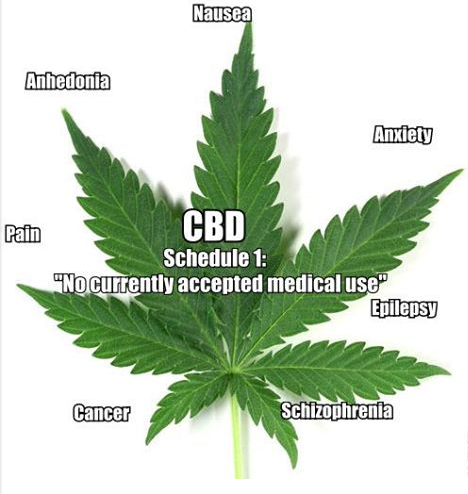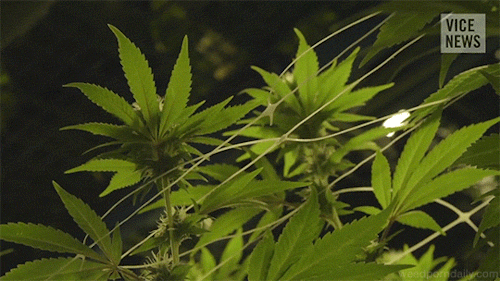(OCCNewspaper) The rule is titled ““Establishment of a New Drug Code for Marihuana Extract”, and it isn’t readily appearing in searches since they used the now obsolete spelling with a “h” instead of Marijuana with a “j”. Sneaky trick to hopefully slip it through? I don’t think it was an accident. The Controlled Substances Act lists Marijuana as one specific code, and THC (or tetrahydrocannabinol, the psychoactive molecule) has another, but now they have conveniently grouped for“Marihuana Extract.” They are capturing all the different extracts with a single rule. The rule states:
This listing includes (unless specifically excepted or unless listed in another schedule) any material, compound, mixture, or preparation, which contains any quantity of the substance, or which contains any of its salts, isomers, and salts of isomers that are possible within the specific chemical designation. For practical purposes, all extracts that contain CBD will also contain at least small amounts of other cannabinoids.[1] However, if it were possible to produce from the cannabis plant an extract that contained only CBD and no other cannabinoids, such an extract would fall within the new drug code 7350. In view of this comment, the regulatory text accompanying new drug code 7350 has been modified slightly to make clear that it includes cannabis extracts that contain only one cannabinoid.
The rule was submitted by Acting DEA Administrator Chuck Rosenberg. He justifies their actions further using the antiquated 50 year old international treaties: > The United Nations Conventions on international drug control treats extracts from the cannabis plant somewhat differently than marihuana or tetrahydrocannabinols. The creation of a new drug code in the DEA regulations for marihuana extracts will allow for more appropriate accounting of such materials consistent with treaty provisions. The Single Convention on Narcotic Drugs, 1961 (“Single Convention”) and the 1971 Convention on Psychotropic Substances (“Psychotropic Convention”) provide for the international control of marihuana constituents. Many of the CSA’s provisions were drafted to comply with these Conventions.
Hemp farmers hoping to market their CBD extracts across state lines are in for a real shock when they find out about these new rules. Until now, it was thought that CBD extracts that were only CBD could, in fact, travel between states. Many of these extracts are derived from Industrial Hemp, but the new rule makes no distinction as to the original source and specifies that pure CBD extracts are also banned from crossing state lines. Under the new code for non-resinous extracts – 7350 – they define the source as, “an extract containing one or more cannabinoids that has been derived from any plant of the genus Cannabis.” The rule is titled ““Establishment of a New Drug Code for Marihuana Extract”, and it isn’t readily appearing in searches since they used the now obsolete spelling with a “h” instead of Marijuana with a “j”. Sneaky trick to hopefully slip it through? I don’t think it was an accident. The Controlled Substances Act lists Marijuana as one specific code, and THC (or tetrahydrocannabinol, the psychoactive molecule) has another, but now they have conveniently grouped for“Marihuana Extract.” They are capturing all the different extracts with a single rule. The rule states: This listing includes (unless specifically excepted or unless listed in another schedule) any material, compound, mixture, or preparation, which contains any quantity of the substance, or which contains any of its salts, isomers, and salts of isomers that are possible within the specific chemical designation. For practical purposes, all extracts that contain CBD will also contain at least small amounts of other cannabinoids.[1] However, if it were possible to produce from the cannabis plant an extract that contained only CBD and no other cannabinoids, such an extract would fall within the new drug code 7350. In view of this comment, the regulatory text accompanying new drug code 7350 has been modified slightly to make clear that it includes cannabis extracts that contain only one cannabinoid. The rule was submitted by Acting DEA Administrator Chuck Rosenberg. He justifies their actions further using the antiquated 50 year old international treaties: The United Nations Conventions on international drug control treats extracts from the cannabis plant somewhat differently than marihuana or tetrahydrocannabinols. The creation of a new drug code in the DEA regulations for marihuana extracts will allow for more appropriate accounting of such materials consistent with treaty provisions. The Single Convention on Narcotic Drugs, 1961 (“Single Convention”) and the 1971 Convention on Psychotropic Substances (“Psychotropic Convention”) provide for the international control of marihuana constituents. Many of the CSA’s provisions were drafted to comply with these Conventions. Hemp farmers hoping to market their CBD extracts across state lines are in for a real shock when they find out about these new rules. Until now, it was thought that CBD extracts that were only CBD could, in fact, travel between states. Many of these extracts are derived from Industrial Hemp, but the new rule makes no distinction as to the original source and specifies that pure CBD extracts are also banned from crossing state lines. Under the new code for non-resinous extracts – 7350 – they define the source as, “an extract containing one or more cannabinoids that has been derived from any plant of the genus Cannabis.”


